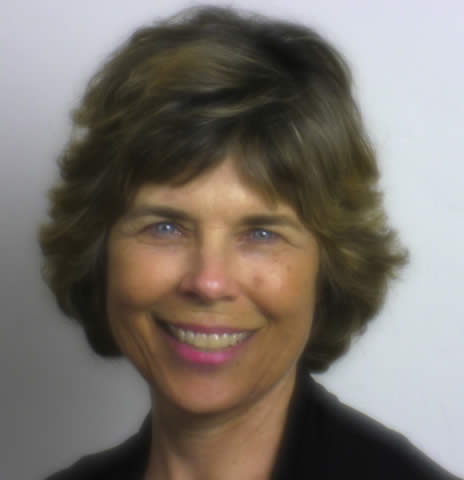|
THE SCIENCE OF CONSCIOUSNESS April 25-30, 2016 - Tucson Summary Description Pre-Conference Workshop
Tuesday, April 26, 9 am-1 pm
Reconciling Third Person and First Person Perspectives
How do third person versus first person perspectives affect our views on the nature of consciousness? Third person implies Newtonian, materialist neuroscience associating brain activity with reports by a subject. Third person perspectives generally see consciousness as a bottom-up product of brain activity, The first person perspective explores inwardly, often yielding perceptions which contradict materialist worldviews. University of Oregon neuroscience professor and meditator Marjorie Woollacott will describe third and first person studies on meditation, healing and placebo. Marjorie Woollacott, PhD, Professor of Human Physiology, University of Oregon Dept. of Human Physiology and Inst. of Neuroscience Eugene, OR
The goal of this workshop is to give participants an opportunity to examine how approaches to exploring consciousness from the third person vs. first person perspective affect our conclusions about the nature of consciousness. We define the third person perspective as the methods used by neuroscientists to explore the associations between brain activity and consciousness within a Newtonian or materialist word view. The first person perspective is defined as that used by individuals in exploring and describing their own experience of consciousness, which may contradict materialist worldviews. Adherents of these perspectives often have opposing views of the origins of consciousness. Neuroscientists often conclude from experiments performed from a third-person perspective that consciousness is solely a product of brain activity (considered a “bottom-up” perspective). In contrast, the person who describes their own experience often concludes that consciousness can exist and act separately from the activity of the brain (considered a “top-down” perspective). In this workshop, we explore whether these two views to the origins of consciousness are really irreconcilable, or whether, alternatively, they could be reconciled by exploring how each gives us access to distinct pathways toward a clearer understanding of the nature of consciousness. In the first half of this workshop we will discuss research on meditation from both first and third person perspectives, to explore how each contributes to our understanding of the nature of consciousness. We will discuss the extensive scientific data demonstrating modulation of brain activity during meditation, providing insight into the relationship between meditation and both attentional focus and emotional regulation. We will then discuss whether this third person approach to meditation is enough. What does first person research add to our understanding of the nature of consciousness? Should the study of consciousness also include the study of mystical experiences of meditators in order to better understand the effects of meditation on conscious awareness, even when they include phenomena not explainable within a materialist worldview? How might these two methodologies be used in a complementary manner to clarify our understanding of consciousness? In the second half of the workshop, we will discuss research studies exploring the healing effects of the mind (that is, consciousness) on the body. These phenomena presume that the mind of an individual can change the physiology of his/her own body or that of another, in order to heal it (often referred to as energy healing). A number of studies have demonstrated the effectiveness of energy healing, but the underlying mechanisms remain controversial. Many neuroscientists dismiss energy healing as a placebo effect. What is the placebo effect? Is there evidence that consciousness mediates the placebo effect? We will discuss the nature of the placebo effect and consider possible underlying mechanisms. Finally, there will be a discussion of ways to reconcile the current views on consciousness that come from the first and third person perspectives.
Outline of Workshop: 9 am-1 pm Tuesday, April 26th
9:00-9:30 Introduction to first and 3rd perspectives 9:30-9:45 Participant based learning activity 1: Exploring the first and third person perspective in examples from daily life. 9:45-10:00 General Discussion 10:00-10:45 Meditation Research from a First and Third Person Perspective 10:45-11:15 Pause 11:15-12:00 Energy Healing: What is the effect of Mind on Body? 12:00-12:15 Participant Based Learning Activity 2: Energy healing and the placebo effect. What is your personal experience? 12:15-12:30 General discussion 12:30-1:00 Reconciling the first and third person perspectives.
Marjorie Hines Woollacott, PhD, graduated in 1973 from the University of Southern California in cell and molecular biology, specializing in neuroscience, and has been a neuroscience professor at the University of Oregon for more than three decades and a meditator for almost four. She also has a Masters degree in Asian Studies. Her research has been funded by the National Institutes of Health and the National Science Foundation, and includes both research in neuroscience and testing the efficacy of alternative forms of therapy such as tai chi and meditation for improving both attention and balance in adults. She has taught a popular course for over 10 years at the University of Oregon on Complementary and Alternative Medicine. She has coauthored a popular textbook for health professionals and has written more than 180 peer-reviewed research articles — several of which were on meditation, the topic that motivated her to write her latest book, Infinite Awareness: The Awakening of a Scientific Mind. She has been the keynote speaker at conferences in the North and South America, Europe, Australia and Asia, and has taught courses not only in neuroscience and rehabilitation medicine, but in meditation, hatha yoga and complementary medicine. Marjorie’s website: marjoriewoollacott.com.
Early Workshop Fees: TSC General Registrants $60 half day TSC Student Registrants $40 half day General Public - Workshop only $125 half day General Public - Student - Workshop only $75 half day
|
|
|||||||||||||
